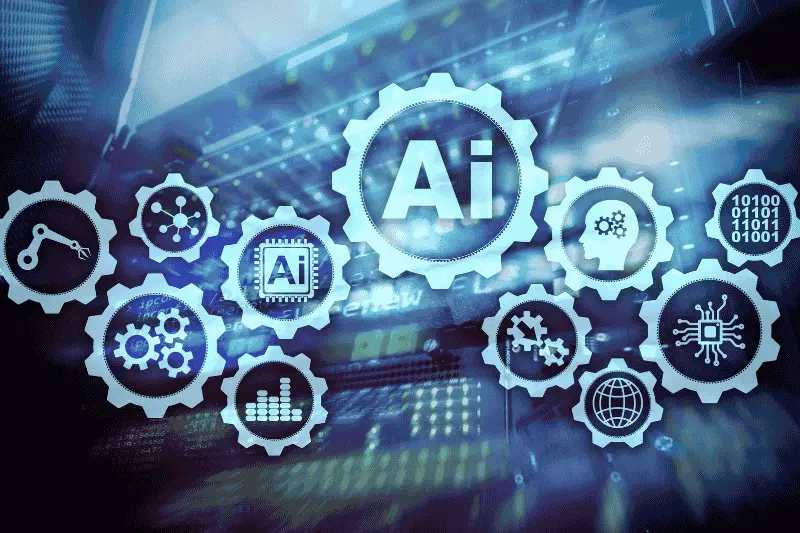Business technology has shifted from a luxury to a fundamental component of modern commerce. In our fast-paced world, it is changing how organizations function, connect, and expand. Whether it’s small startups or large multinational corporations, the adoption of advanced technologies is transforming traditional business models and opening up new opportunities. This change goes beyond merely using digital tools; it involves rethinking how businesses operate to enhance efficiency, foster innovation, and drive growth. The Evolution of Business Technology highlights how these advancements are reshaping industries, enabling organizations to adapt, and driving them toward sustainable success in an increasingly digital world.
Cloud Computing
Cloud computing has become a crucial element in business technology, enabling companies to store and access data from anywhere. This transition has significantly lowered the necessity for costly on-site infrastructure, allowing organizations to expand their operations with ease. Teams can work together in real-time, no matter where they are, eliminating geographical limitations. With cloud-based tools like Google Workspace and Microsoft 365, businesses of all sizes can enhance their workflows and boost productivity while managing expenses effectively.
Artificial Intelligence
A significant innovation today is artificial intelligence (AI), which is transforming how decisions are made and how efficiently operations run. AI allows companies to sift through large volumes of data, forecast trends, and automate routine tasks. For example, AI-powered chatbots offer immediate customer support, improving user experiences and cutting down response times. Machine learning, a branch of AI, enhances this by allowing systems to learn from new data and progressively refine their performance. This leads to a more intelligent and flexible method of handling operations and interacting with customers.
Blockchain Technology
Blockchain technology has significantly impacted various sectors by providing secure and transparent transactions. Its uses go beyond just cryptocurrency, reaching industries such as supply chain management and healthcare, where maintaining tamper-proof records is essential. By removing intermediaries and facilitating smart contracts, blockchain accelerates transactions and lowers costs, creating a dependable basis for trust in digital interactions. This technology is particularly beneficial for businesses that handle sensitive information or manage intricate supply chains.
The Internet of Things
The Internet of Things (IoT) is transforming business technology in significant ways. By linking devices and gathering real-time data, IoT improves various processes, from inventory management to predictive maintenance. For instance, retailers are using IoT sensors to keep track of inventory levels and streamline their supply chains. In office environments, IoT-enabled devices contribute to creating smarter, more efficient workspaces, boosting employee productivity and promoting environmental sustainability.
Cybersecurity
As businesses increasingly depend on technology, the significance of strong cybersecurity measures is more critical than ever. With growing digital footprints, organizations face heightened risks of cyberattacks. Implementing advanced cybersecurity tools and practices, like encryption and multi-factor authentication, is vital for protecting sensitive data and preserving consumer trust. Companies that make cybersecurity a priority are in a stronger position to defend their operations and reputation in a connected world.
Enhancing Customer Experiences and Data-Driven Decisions
The influence of business technology goes well beyond just improving operational efficiency. It has revolutionized customer experiences by facilitating personalized interactions and customized solutions. Tools such as customer relationship management (CRM) systems offer valuable insights into consumer behavior, allowing businesses to create more effective marketing strategies. Additionally, data analytics enables companies to make informed decisions, optimizing various aspects from resource allocation to product development.
Challenges in Adopting Business Technology
However, adopting business technology comes with its own set of challenges. For many small businesses, the upfront costs associated with advanced tools can be intimidating. Moreover, there is frequently a skills gap that makes it difficult to manage and implement these technologies effectively. Security issues are also a significant concern, as increased connectivity heightens the risk of data breaches and cyberattacks. Nevertheless, the advantages of embracing business technology greatly surpass the potential downsides, making it an essential investment for long-term success.
Conclusion
Business technology serves as more than just a tool; it acts as a powerful catalyst for transformation. By adopting innovative systems and a digital-first approach, organizations can achieve unprecedented levels of efficiency, creativity, and growth. Whether you’re a new entrepreneur or a seasoned leader, the real question is not whether to embrace business technology, but rather how to utilize it effectively to maintain a competitive edge. The path to a technology-driven future begins now, and the possibilities are endless.








